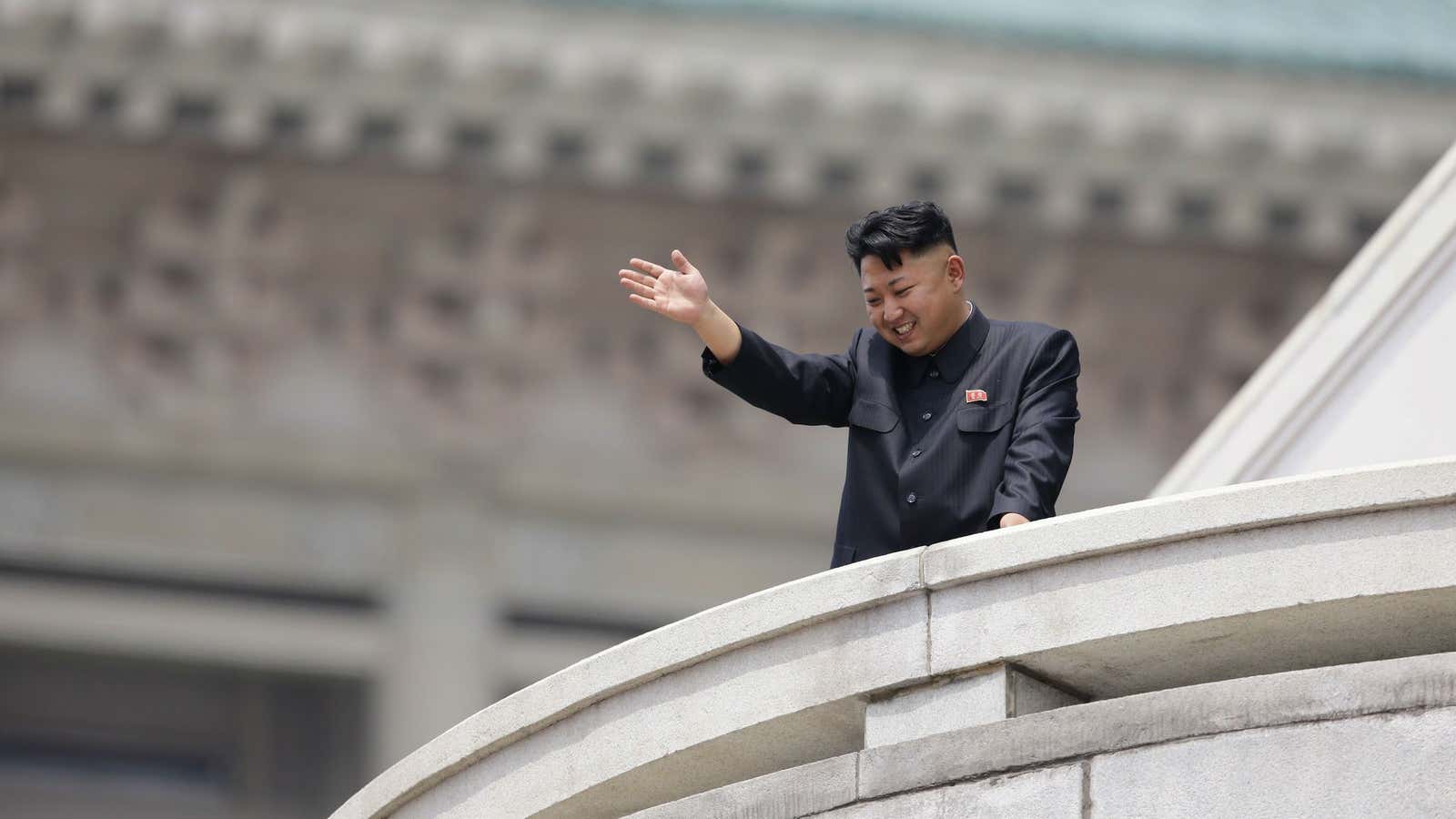A secretive North Korean government division that funds the lavish lifestyle of North Korea’s inner circle may be running into financial trouble.
Since the 1970s, the innocuously named Office 39 has made money for the country’s communist elites, through everything from counterfeit US dollars to the production and sale of crystal methamphetamine. Experts estimate the department controls as much as $6 billion, equivalent to half of North Korea’s GDP.
Now, Office 39 is coming under pressure from defections, growing international scrutiny, and changes in the North Korean economy. “It’s become harder [for North Korea] to make a buck through illicit means,” Ken Gause, a North Korea expert at CNA Corporation, told the Wall Street Journal.
Here’s what is happening to some of Office 39’s main sources of funding, according to defectors and researchers:
Smuggling gold
At its peak in the 1980s, Daesong Group, a state-owned shell company used by Office 39, sold 10 tons (nine tonnes) of North Korean gold a year. Output has fallen to around four tons a year, according to North Korean defector Choi Kun-chol (paywall) who worked at the country’s gold trading business, part of Daesong Group. Choi said that some gold is still being smuggled in backpacks into China where it is mixed with Chinese gold.
Money laundering
The Vienna-based Gold Star Bank, believed to be funnel money back to Office 39, was closed in 2004. In July, North Korea was given observer status in the Organization for Economic Cooperation and Development’s (OECD) Asia Pacific Group on Money Laundering, a sign that North Korea has started to tamp down its illegal money operations.
Counterfeiting US dollars
North Korea’s counterfeit US hundred dollar bills, known as ”supernotes,” were considered one of the world’s most accurate forgeries. They were one of Office 39’s largest sources of funds throughout the 2000s until the US began cracking down on the sale of the notes.
Trafficking drugs
Office 39 is believed to have trained chemists to produce pharmaceutical-grade amphetamines as well as heroin, which sold in Japan and elsewhere in Asia. Australia intercepted a freighter carrying 110 pounds of heroin in 2003. “Ever since those years they’ve been a little more circumspect in dealing in narcotics,” an expert told NK News this year.
The biggest concern for Office 39 may be the fact that more of its staff is realizing they can make money through the country’s small but growing underground economy. Last month, a senior official with Daesong Bank, a subsidiary of Daesong Group, defected to Russia with $5 million of the fund’s money.
Now, Office 39 is focusing on less salacious business ventures—from importing electronics to selling ginseng and bootleg cigarettes—as well as facilitating business deals with foreign companies and running restaurant chains. The new lines of business may not have the same fat profit margins—but hey, it’s a living.
